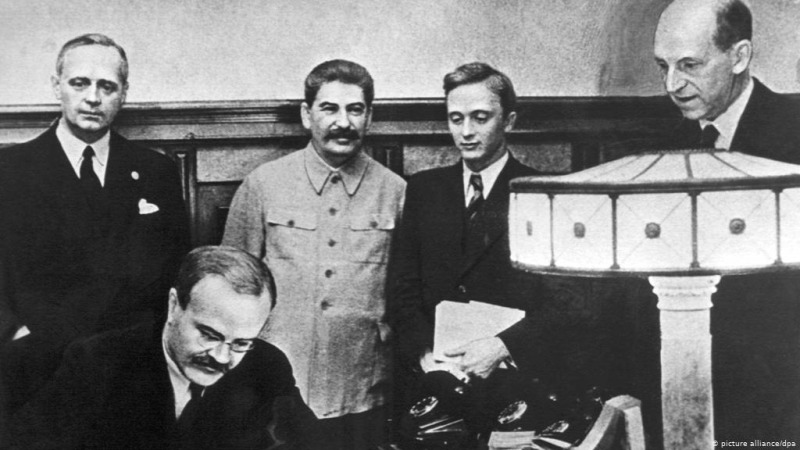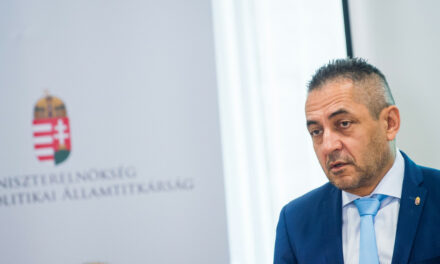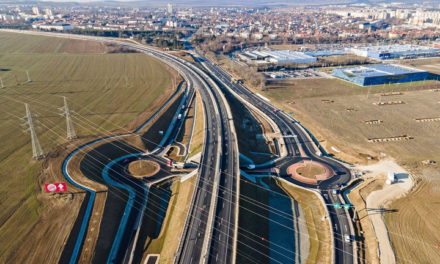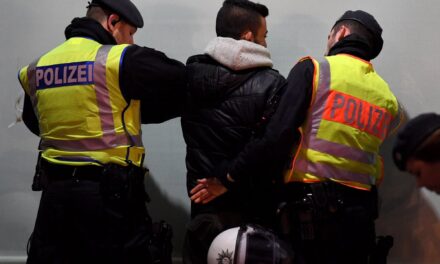The compromise was also acceptable to the German Führer, Adolf Hitler, who had already decided to invade Poland and then Western Europe, and thus could carry out the aggression unhindered.
The document signed in Moscow on August 23, 1939 by Soviet People's Commissar for Foreign Affairs Vyacheslav Molotov and German Foreign Minister Joachim von Ribbentrop in the presence of Stalin entered into force immediately.
In a ten-year agreement consisting of seven articles, the parties undertook to refrain from all acts of violence against each other, from all acts of aggression and from all attacks, either individually or jointly with other powers. The treaty also had a secret clause that divided Eastern Europe into German and Soviet spheres of interest, and after the outbreak of the war, territorial division took place based on this. The existence of the secret additional protocol - the text of which was published in the West as early as 1946 - was denied by the Soviet Union until Gorbachev's perestroika.
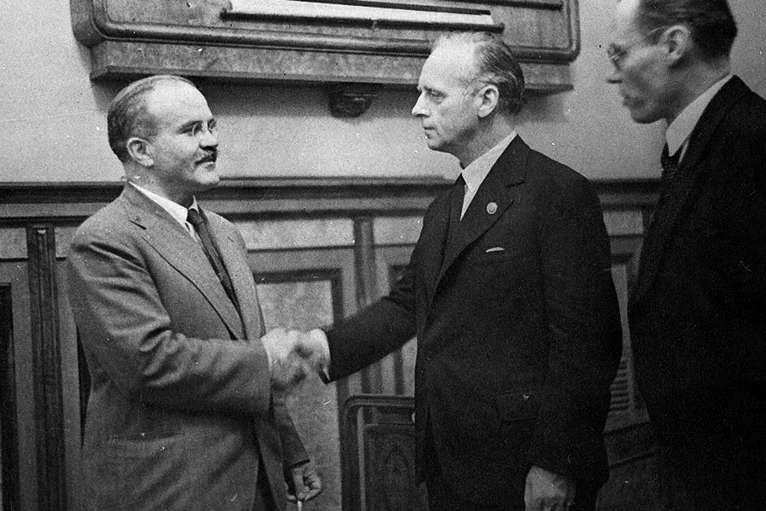
Molotov welcomes the Imperial Foreign Minister Ribbentrop, who arrived in Moscow, in the Kremlin Source: Ria/Novosti/Archive
All of this only delayed the confrontation: Hitler, after he was no longer threatened by the danger of a two-front war, attacked the Soviet Union on June 22, 1941 without a declaration of war, and the Molotov-Ribbentrop Pact expired.
The Nazi Third Reich was destroyed in 1945, but communist dictatorships were established in the Eastern and Central European countries that fell into the Soviet sphere of interest.
which existed in different forms and with different methods of repression until the regime change in the early 1990s.
In June 2008, at the international conference entitled "The Conscience of Europe and Communism" held in Prague, former Czech President Václav Havel said: Europe bears an extraordinary responsibility for Nazism and Communism, the two totalitarian systems that were created on this continent.
The participants of the meeting, and then in September the European Parliament (EP)
Hungarian, Estonian, British, German and Latvian representatives proposed that August 23, the day of the signing of the Molotov-Ribbentrop Pact, be declared a day of remembrance for the victims of totalitarian regimes.
The EP adopted a resolution on this in April 2009. On June 10, 2011, at their last meeting under the Hungarian EU presidency, the justice ministers of the European Union, at the initiative of Poland, Hungary and Lithuania, commemorated the victims of crimes committed by totalitarian regimes in a joint resolution. The document recalled the commemoration day for the victims of totalitarian regimes and asked the member states to examine how the commemoration should take place in the light of the history and characteristics of their own countries.
Remembrance Day was held for the first time in 2011.
At an EU government-level conference held in Warsaw, the capital of Poland, the successive EU president agreed to set up a multi-country network for the research of totalitarian systems. The agreement reached at the platform's founding meeting in Prague in October was signed by 19 institutes from 13 countries, and Hungary is represented by the House of Terror Museum in the cooperation.
In 2012, the leaders of the European memorial institutions signed a joint declaration in Budapest on the creation of a European museum whose task is to present the functioning and crimes of communist, national socialist and other totalitarian systems.
In June 2018, Prime Minister Viktor Orbán inaugurated the memorial to the victims of the Soviet occupation (communist dictatorship) in Óbuda.
In 2019, on Remembrance Day, several European public television stations showed short films made on the initiative of the Warsaw-based European Network of Remembrance and Solidarity (ENSR) recalling the fate of the victims of violence and persecution committed in the name of European totalitarian regimes, one of them being the youngest victim of the 1956 Hungarian revolution, He recalled the memory of Péter Mansfeld.
Source: hirado.hu

